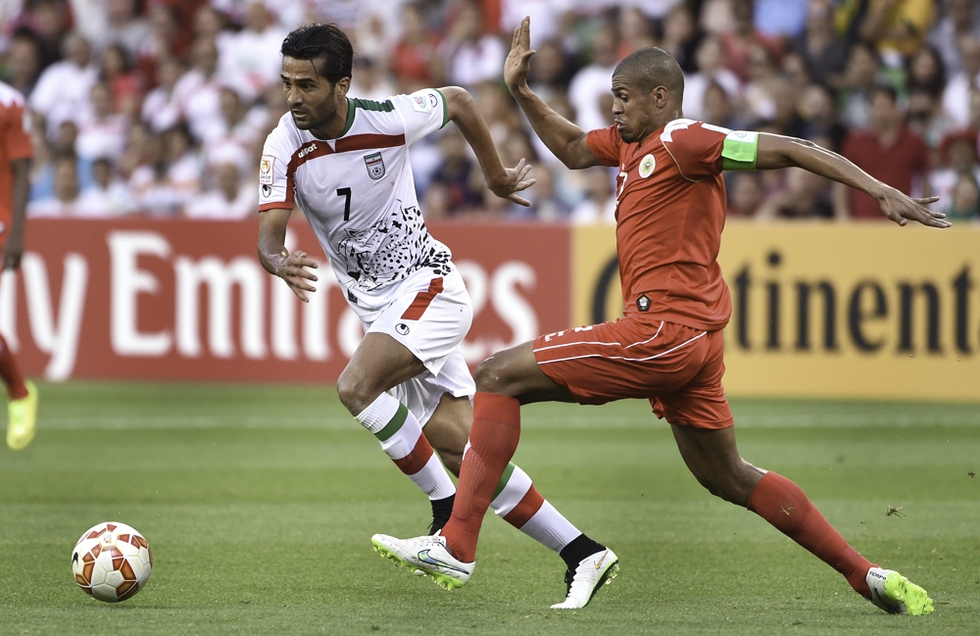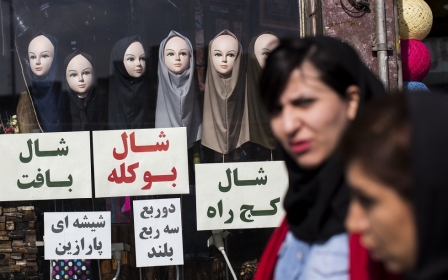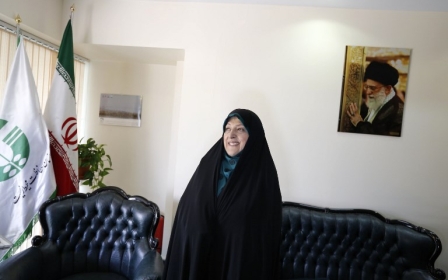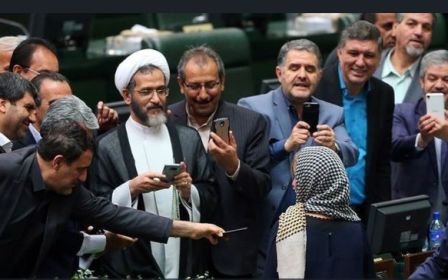Iran drops football players from national team for playing against Israeli club

Two Iranian football players have been banned for life from the national team as punishment for playing against an Israeli side for their Greek club, a senior Iranian sports ministry official told state TV on Thursday.
Masoud Shojaei, 33, captain of the national team, and Ehsan Hajsafi, 27, played for Greek side Panionios against Israel's Maccabi Tel Aviv on 3 August, in Athens. Iran's Football Federation last week strongly condemned their participation.
Iran does not recognise the state of Israel and has long prohibited its athletes from competing against Israeli athletes in any contest or tournament.
The Iranian athlete Alireza Khojasteh pulled out of the judo competition at the 2016 Rio Olympics, citing personal reasons. It is widely believed that he did so to avoid facing an Israeli opponent.
"Hajsafi and Shojaei have no place in Iran’s national football team any more... they crossed Iran's red line," Iran's deputy sports minister Mohammad Reza Davarzani said.
"Playing against the representative of a loathsome regime (Israel)... is unacceptable for our nation.”
The players had initially refused to play in the away leg of the fixture in Netanya, Israel, on 27 July.
“Despite numerous negotiations with the two soccer players and all the pressure that the Greek club had placed on them, the pair refused to appear in the first-leg match held in the occupied Palestinian lands,” the Football Federation said in a statement on 5 August, referring to the stadium in Israel.
Prominent football players and many ordinary Iranians have backed the two players on social media, saying they had no choice but to play the match.
But Iranian Football Federation officials said they should not have played “even if their contracts with the Greek team would have been terminated".
Shojaei had also made headlines in June when he asked Iranian President Hassan Rouhani to allow women into the stadium for the team's game. Women are barred from entering football stadiums due to Iran's conservative laws on gender segregation.
"They should set a course that women are also allowed to come to stadiums in the future," Shojaei was quoted by Iranian media as saying.
New MEE newsletter: Jerusalem Dispatch
Sign up to get the latest insights and analysis on Israel-Palestine, alongside Turkey Unpacked and other MEE newsletters
Middle East Eye delivers independent and unrivalled coverage and analysis of the Middle East, North Africa and beyond. To learn more about republishing this content and the associated fees, please fill out this form. More about MEE can be found here.




